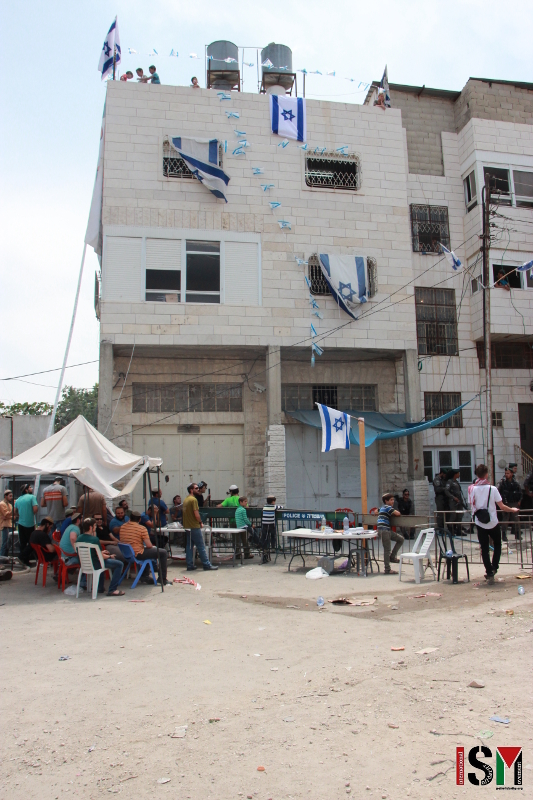Tag: International law
-
Israeli forces repress Friday demonstration in Kafr Qaddum
6th August 2017 | International Solidarity Movement, Huwwara team | Kafr Qaddum, occupied Palestine On Friday 4th of August residents of Kafr Quaddum held their weekly demonstration against the closure of a road, once the main transport route from the community to Nablus. The weekly Friday demonstrations began on 1st July 2011. The closing of…
-
Settlers illegally occupy a Palestinian house in Hebron
6th August 2017 | International Solidarity Movement, al-Khalil team | Hebron, occupied Palestine On Tuesday 25th of July some 50 Israeli settlers illegally occupied a Palestinian house in illegal occupied Al-Khalil (Hebron) in H2 in an attempt to take control of the house. The settlers have stayed in the Palestinian building for six days, protected…
-
Israeli forces violently repress Al-Aqsa solidarity demonstration in al-Khalil (Hebron) [VIDEO]
30th July 2017 | International Solidarity Movement, Al-Khalil team | Hebron, occupied Palestine An Al-Aqsa solidarity march organized this Friday in occupied Hebron was heavily repressed by Israeli Forces. Soldiers and border police fired stun grenades, teargas, putrid-smelling “skunk” water, rubber-coated steel bullets and live ammunition at demonstrators, injuring many. Several young protesters were also…


![Israeli forces violently repress Al-Aqsa solidarity demonstration in al-Khalil (Hebron) [VIDEO]](https://palsolidarity.org/wp-content/uploads/2017/07/IMG_8019.jpg)